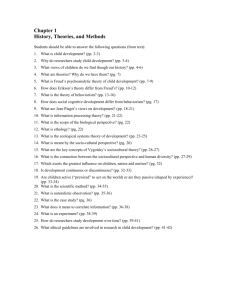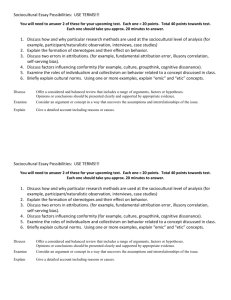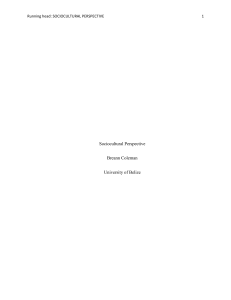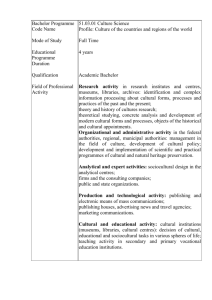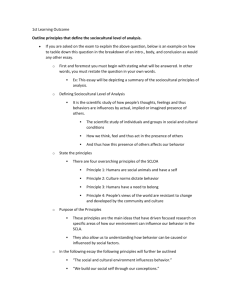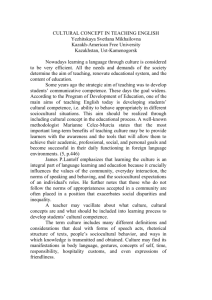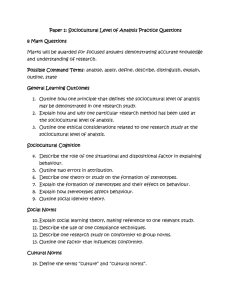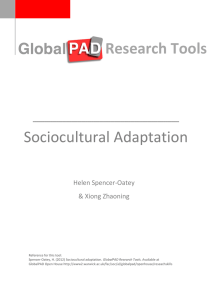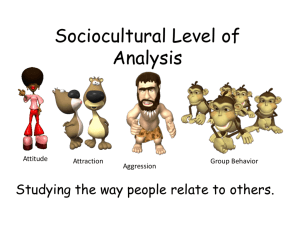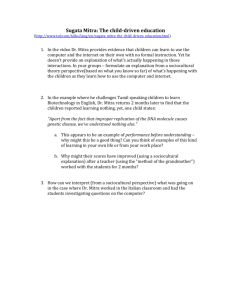Sociocultural learning in the classroom
advertisement
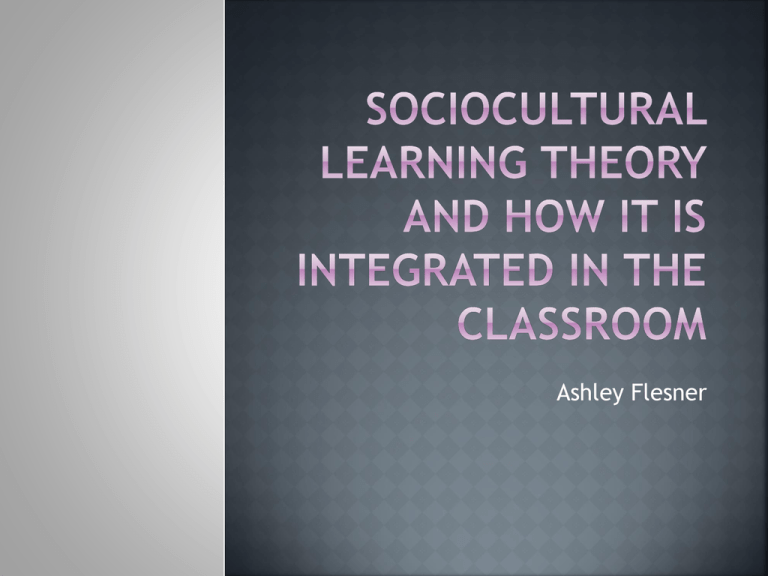
Ashley Flesner Sociocultural learning uses critical thinking, problem solving, research and lifelong learning to emphasize learning from experience and from student environment or culture. It is a fundamentally different view of learning as students’ learning is differentiated based on learning goals, tools used and how the learner interprets the material being learned. Sociocultural learning is typically set up in phases that describes the systematic process as a whole. Lev Vygotsky ultimately derived the sociocultural theory of learning through his work and believed “that parents, caregivers, peers and the culture at large were responsible for the development of higher order functions.” Vygotsky was among other great theorists such as Frued, Skinner and Piaget but died at the age of 38. As his work was published, his theories grown in popularity within the educational world. Wertsch (1991) proposed three major findings within Vygotsky’s Sociocultural Theory of Learning: Individual development is based on cultural and social experiences. Human actions are mediated through tools and signs (computers, calculators, paint brushes, etc. are required to facilitate learning.) The first two themes, individual development and human actions, are best examined through genetic or developmental analysis (cultural background.) Ultimately, the Zone of Proximal Development includes all of the skills that the person is capable of learning and possessing but has not yet learned. According to Vygotsky, the Zone of Proximal Development “is the distance between the actual development level as determined by independent problem solving and the level of potential development as determined through problem solving under adult guidance or in collaboration with more capable peers.” The teacher and student role ultimately shifts in the sociocultural learning classroom. Teachers and students confer often to determine and facilitate the meaning of learning in the classroom. Learning becomes an equal process where students take responsibility for what they learn and how they learn it. Sociocultural learning within the classroom requires students and the educator to have a positive and open relationship. Collaborative Learning and Motivation Factors: Cooperation as a Value Heterogeneous Grouping Positive Interdependence Individual Accountability Simultaneous Interaction Equal Participation Collaborative Skills Group Autonomy (Jacobs, Power, & Loh, 2002) Language Learning Theories and Cooperative Learning Techniques in the EFL Classroom By: Matthew T. Apple http://narak.academia.edu/MatthewApple/Papers/427218/Language_learning_the ories_and_cooperative_learning_techniques_in_the_EFL_classroom Sociocultural Development Theory By: Learning Theories http://www.learning-theories.com/vygotskys-social-learningtheory.html Sociocultural Theory By: Sarah Scott and Annemarie Palincsar http://www.education.com/reference/article/sociocultural-theory/ What is Sociocultural Theory? By: Kendra Cherry http://psychology.about.com/od/developmentecourse/f/sociocultural -theory.htm
